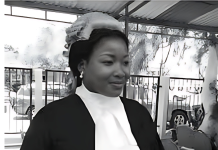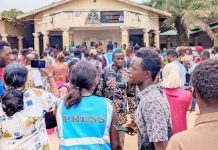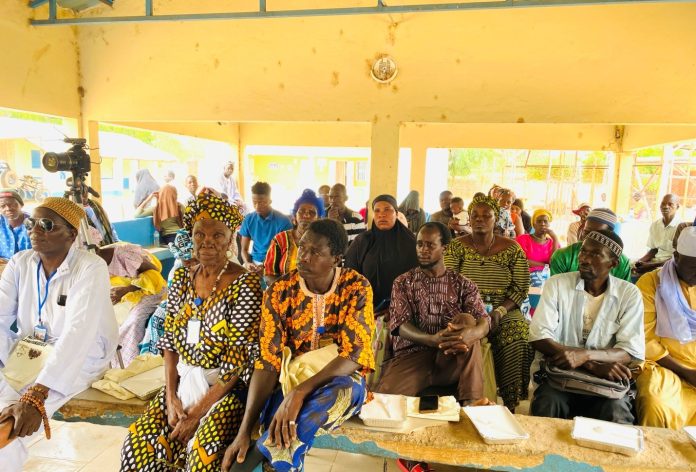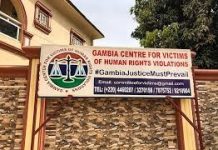By Mariama Marong
The National Council for Civic Education (NCCE) has launched a countrywide community engagement campaign to raise awareness on the critical importance of birth registration. The sensitisation initiative, which began in Central River Region (CRR) North, is expected to continue across Lower River Region (LRR) and North Bank Region (NBR), targeting rural communities where knowledge about legal identity and civic documentation remains limited.
Held under the theme “Strengthening Community Participation Toward Birth Registration Ensures Awareness, Accessibility, Feedback, and Sustainable Impact,” the campaign seeks to educate communities about the legal, social, and economic benefits of registering every child at birth and obtaining a birth certificate.
Speaking at one of the sessions, Mariama Gaye, a Civic Education Officer at NCCE, emphasised the inseparable connection between identity and civil rights. “A naming ceremony is never completed without a birth certificate,” she said, framing the issue as a foundational step in protecting children’s rights and enabling access to basic services.
Gaye explained that birth registration provides the first legal recognition of a child’s existence. “It lays the foundation of legal identity, enabling individuals to prove their existence and link to their parents, which is essential for healthcare, education, and social welfare programs,” she said. Without documentation, she warned, children can face lifelong disadvantages. “Children can face exclusion and vulnerability, potentially being denied access to services or exploited.”
She noted that birth registration is also essential for later life stages, from enrolling in school to applying for government programs. “Birth certificates are often required for enrollment in schools, applying for passports, and accessing government programs,” she stressed.
Vicente Gomez, a public health officer at Njau Health Centre, also addressed the gathering, highlighting how a birth certificate is not only a civil document but a protective measure for individuals throughout their lives. “It provides a formal record of a person’s birth and enables them to prove their age and identity, preventing issues like being treated as an adult before reaching adulthood,” he said.
He noted that in adolescence and adulthood, birth certificates become indispensable for everyday activities. “Official identification is required for basic but critical transactions, like opening a bank account, registering to vote, receiving a passport, entering the job market, and buying or inheriting property,” Gomez said. “Economic opportunities are severely limited for those without a birth certificate, raising their risk of falling into or remaining trapped in poverty.”
Gomez added that the government has introduced electronic birth registration to make the process more accessible and secure. “This ensures all citizens acquire documents in the right manner for further protecting the rights of people who are born,” he said. He urged parents to act swiftly: “People should register their children at the right time for them to have birth certificates for their own identification and development processes.”
Omar Ceesay from NCCE elaborated on the legal framework that makes birth registration mandatory. “According to the 1970 Constitution, Child Act, and international conventions, every child born must have a name and it must be registered,” he said. “It is mandatory for all individuals to undergo birth registration. Every child or individual must be registered because this is a legal identity.”
Ceesay reminded participants that the Gambian Constitution is explicit on the matter. “It says every child born must have a right to a name and that name must be given to them by their parents,” he explained. “Documents are key and crucial in identifying a person’s identity and sense of belonging.”
Several community members also weighed in. Ali Ceesay, a participant, described birth registration as a fundamental requirement for every human being. “It is something every child must have, and any other individual residing within a country or place,” he said.
Fanna Jobe, a native of Upper Saloum, echoed the sentiment and called on all parents to ensure their children are properly documented. “Every parent should ensure that their children are registered and that they have acquired the electronic birth certificate,” she said. She warned of the dangers of statelessness. “We must understand then that we were born in order to attain freedom from oppression, and without proper registration, we might face challenges that will lead us to statelessness.”






















